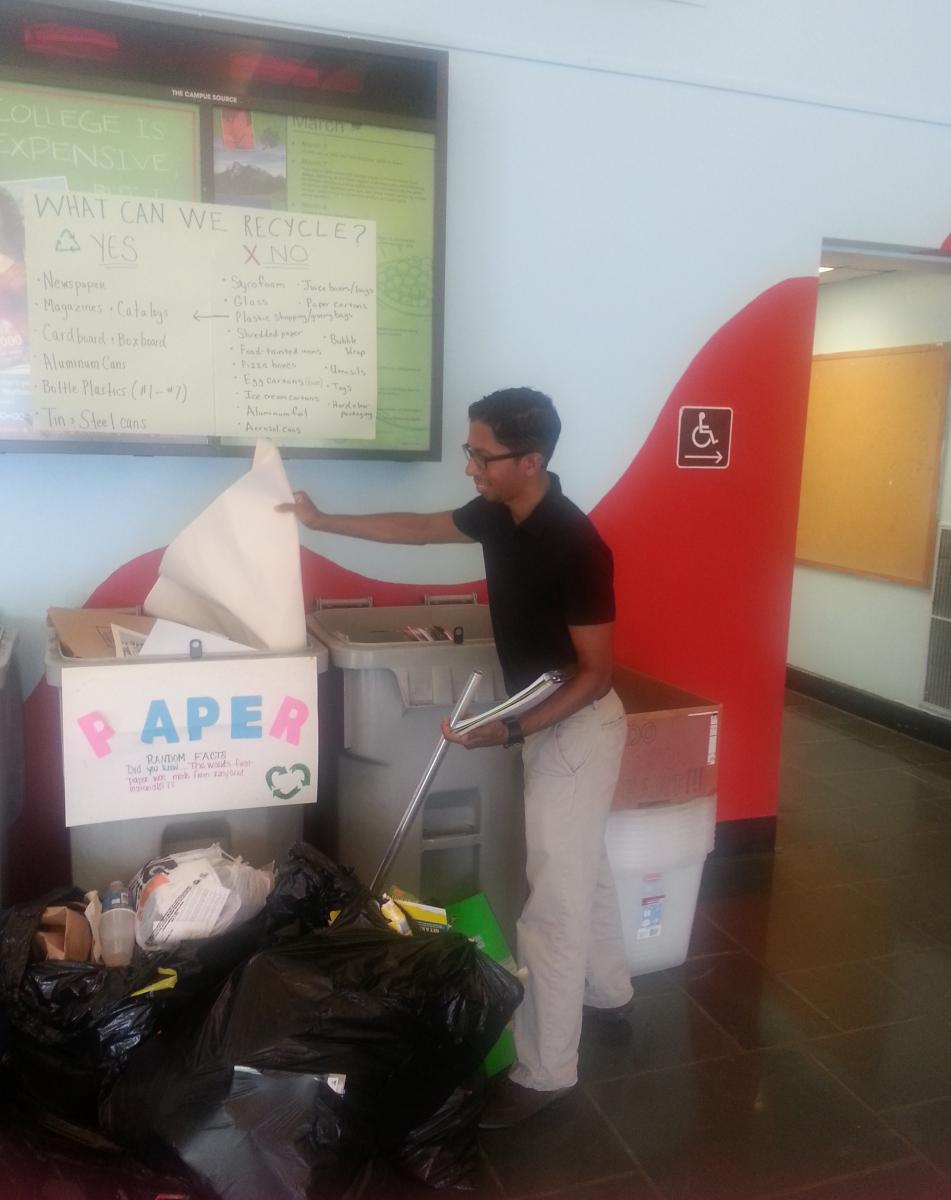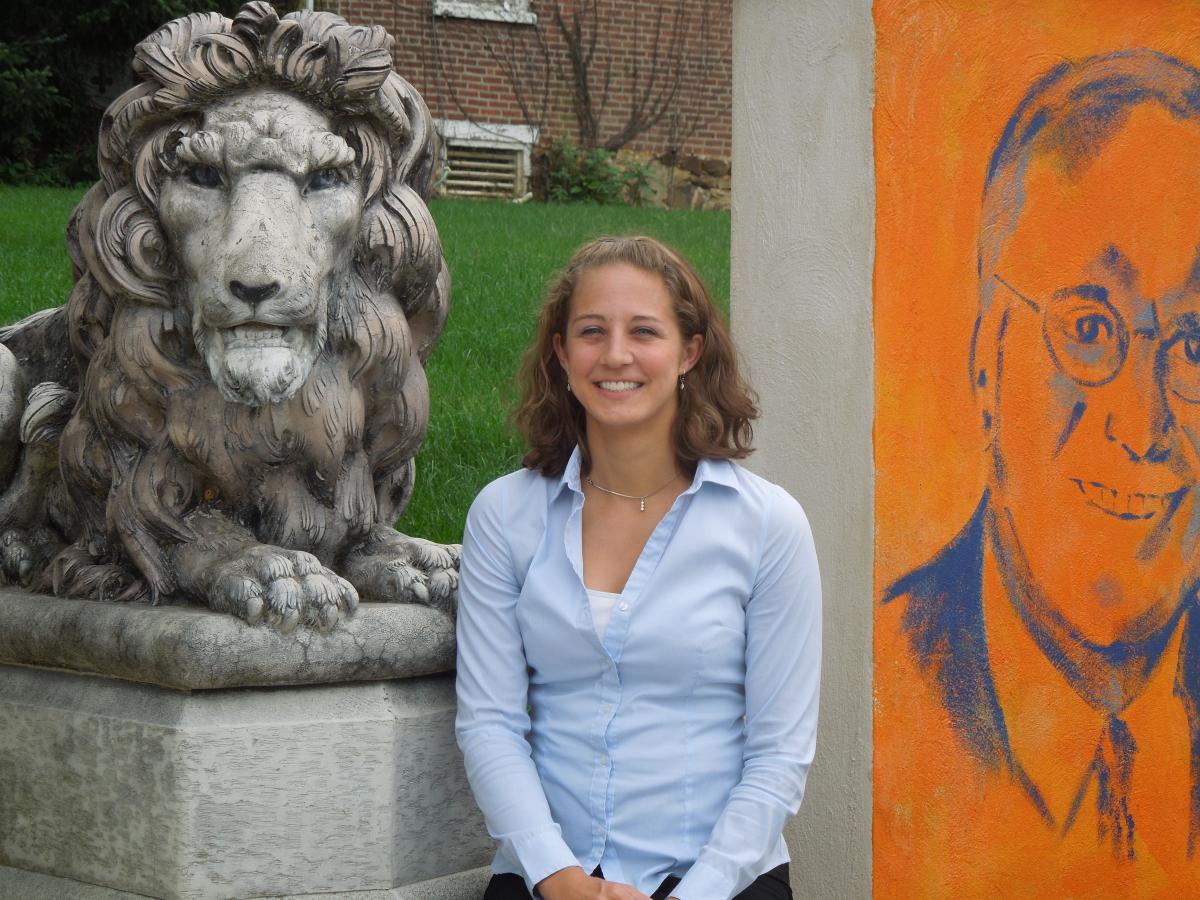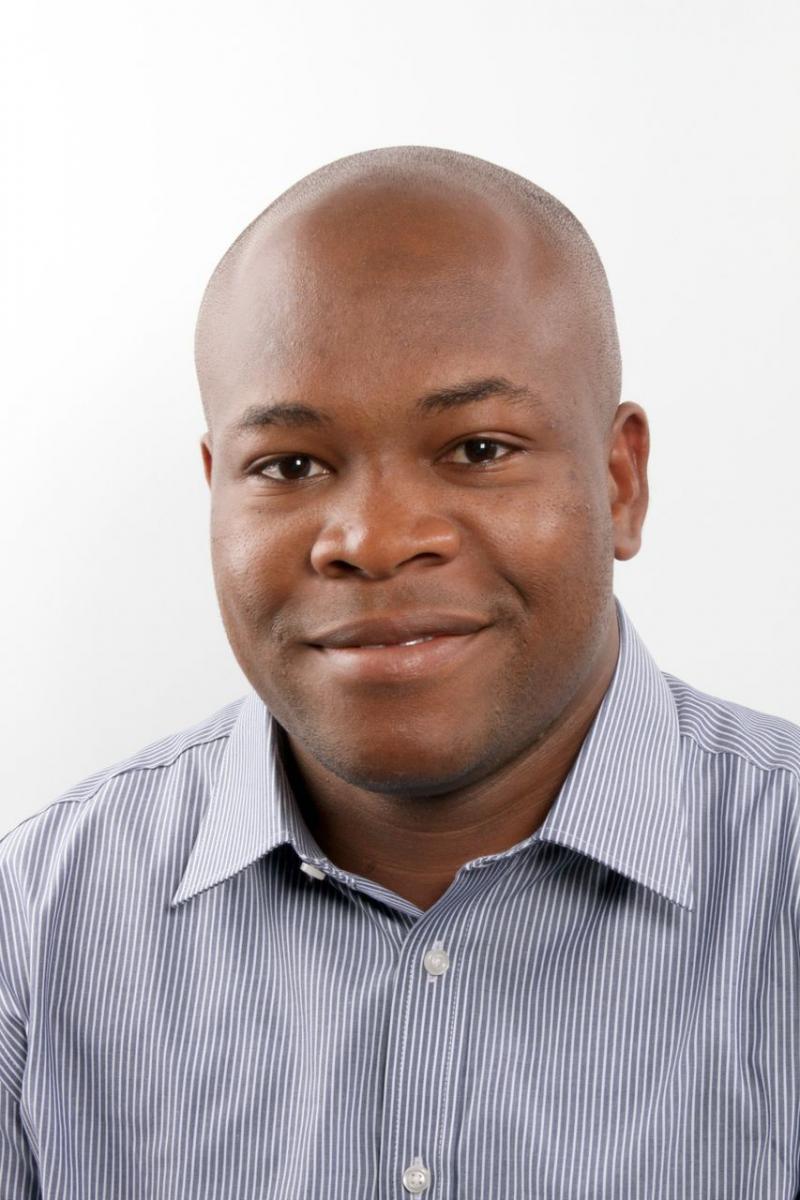EDF Climate Corps fellow | August 28, 2013
Since 2010, Environmental Defense Fund (EDF) and the Building Green at MSI's Initiative have worked together to place EDF Climate Corps fellows at minority serving institutions. With the support of the Wells Fargo Foundation, EDF placed fellows at six institutions this summer. Read below to learn about the experiences of three of these fellows.

Name: Brian Cabezas
Hometown: Holbrook, NY
School: IE Business School
Host Organization: South Carolina State University
Q: Why did you join EDF Climate Corps?
A: I joined EDF Climate Corps, because I’ve always been interested in the work that EDF does, especially its market-based and collaborative approach to address environmental issues. I joined EDF Climate Corps because I thought it would be a great way to apply my skills in investment analysis, organizational behavior and strategy that I’m learning in IE Business School and get a glimpse into the world of environmental consulting.
Q: What are some of the projects you’re working on?
A: SC State University hasn’t done a greenhouse gas emissions (GHG) inventory, so I’m gathering information to calculate the overall campus GHG emissions that will include purchased electricity, solid waste management and other sources. I’m also prioritizing energy efficiency projects. SC State University was established in 1896 and there are a number of opportunities for energy efficiency upgrades on the university’s campus. For example, most of the buildings don’t have power meters. Having sub-meters will enable the university to track its energy consumption in the respective buildings. What gets measured gets done.
Q: What is the best piece of advice you’ve received this summer?
A: At SC State University, I was encouraged to build an army for energy saving/sustainability initiatives (such as, PC power management, lighting consumption reduction, etc.) by making connections with campus students, staff and faculty. I’m only here 10 weeks, and these projects may not get off the ground this summer, but if the students and faculty members are aware of the research that I have conducted and have access to my work, hopefully, they will be able to continue it after I leave.
Q: What has been the best part about working at SC State University?
A: The best part about working at SC State University has been seeing all of the environmental opportunities that are here. There’s a lot of room for growth in terms of energy efficiency, and I sense that momentum for these kinds of projects is growing, so that’s exciting.
Q: What is the mark you want to leave on the world?
A: The mark that I want to leave on the world is that I want to inspire greater collaborations between business leaders, politicians and sustainability activists. I would like to help move away from rhetoric and toward goals and action. I want to break through stalemates with more collaborative action.

Name: Sarah Grannemann
Hometown: Okemos, MI
School: Johns Hopkins University Carey Business School
Host Organization: The Lincoln University
Q: What is an interesting fact about you?
A: I became especially involved and interested in environmental issues while spending a summer working on water quality issues at Sleeping Bear Dunes National Lakeshore in northern Michigan. Understanding the impact we have on our environment and how we can minimize our impact has become a passion of mine.
Q: What are you working on this summer?
A: At The Lincoln University, our team has been evaluating the costs and benefits of replacing older, less efficient heat exchangers, reducing excess lighting, replacing the warehouse light bulbs, creating a temperature set point policy and reducing use of some buildings during the summer and other breaks. I have also been working with members of The Lincoln University sustainability committee and a student sustainability group to get more people involved and interested in energy efficiency and sustainability on campus. Money saved on energy at Lincoln can be used to further their educational and development goals for students.
Q: In tackling those projects, what has been the most difficult part?
A: Financing facility-related projects can be challenging because spending priorities tend to be academics and other programming. Providing the case for investing in energy efficiency is a challenge because of these other competing needs. Gathering the data needed to make sound decisions has also been difficult because of the way different departments on campus operate.
Q: Have you found any ways that have been helpful in overcoming that difficulty?
A: We’ve tried to focus on projects with quick payback periods that are easy to implement right away and that have a low initial investment, but I have also been involved in laying the groundwork for larger, long-term investments. Also, talking with people in a wide variety of roles has helped me to learn more about the campus and the most effective way to tackle projects.
Q: What is the best piece of advice you’ve received?
A: To really listen to people and respect various perspectives to find out what people can bring to the organization that they may not have realized before. If everyone is involved in sustainability efforts, it will really drive the organization as a whole.

Name: Affuembey Affuembey
Hometown: Buea, Cameroon
School: Southern University and A&M College
Host Organization: Howard University
Q: Why did you join EDF Climate Corps?
A: This is my second time participating as an EDF Climate Corps fellow. I had such a positive experience last year I thought I would join again. My environmental interest was first sparked by a course I took on the relationship between trade and the environment. I learned how business and the environment affect one another. When the EDF Climate Corps opportunity came along, I was interested in learning more about that relationship.
Q: What are you working on this summer?
A: I’m working on computing energy savings from a possible lighting retrofit to then present the business case to the board. I’m also working with another EDF Climate Corps fellow at Groundswell to facilitate a possible partnership between Groundswell and Howard.
Q: What is one thing you’ve learned this summer?
A: This years’ experience has been much more hands on. I’ve learned a lot from working with extra partners on projects that are ongoing.
Q: What is the best piece of advice you’ve received?
A: To be proactive in networking and meeting people. My supervisors have included me in as many meetings as possible both within the university and with outside partners. I’m learning more about what it’s like to work with different constituencies.
Q: What is the mark you want to leave on the world?
A: I want to create opportunities for others. I am where I am because of others. I’m standing on the shoulders of others, so people coming after me should be able to stand on my shoulders.
This post is a part of our "Interviews with Tomorrow's Leaders" series. Stay tuned for more interviews with our 2013 EDF Climate Corps fellows!
About EDF Climate Corps
EDF Climate Corps (edfclimatecorps.org) taps the talents of tomorrow’s leaders to save energy, money and the environment by placing specially-trained EDF fellows in companies, cities and universities as dedicated energy problem solvers. Working with hundreds of leading organizations, EDF Climate Corps has found an average of $1 million in energy savings for each participant. For more information, visit edfclimatecorps.org. Read our blog at edfclimatecorps.org/blog. Follow us on Twitter at twitter.com/edfbiz and on Facebook at facebook.com/EDFClimateCorps.